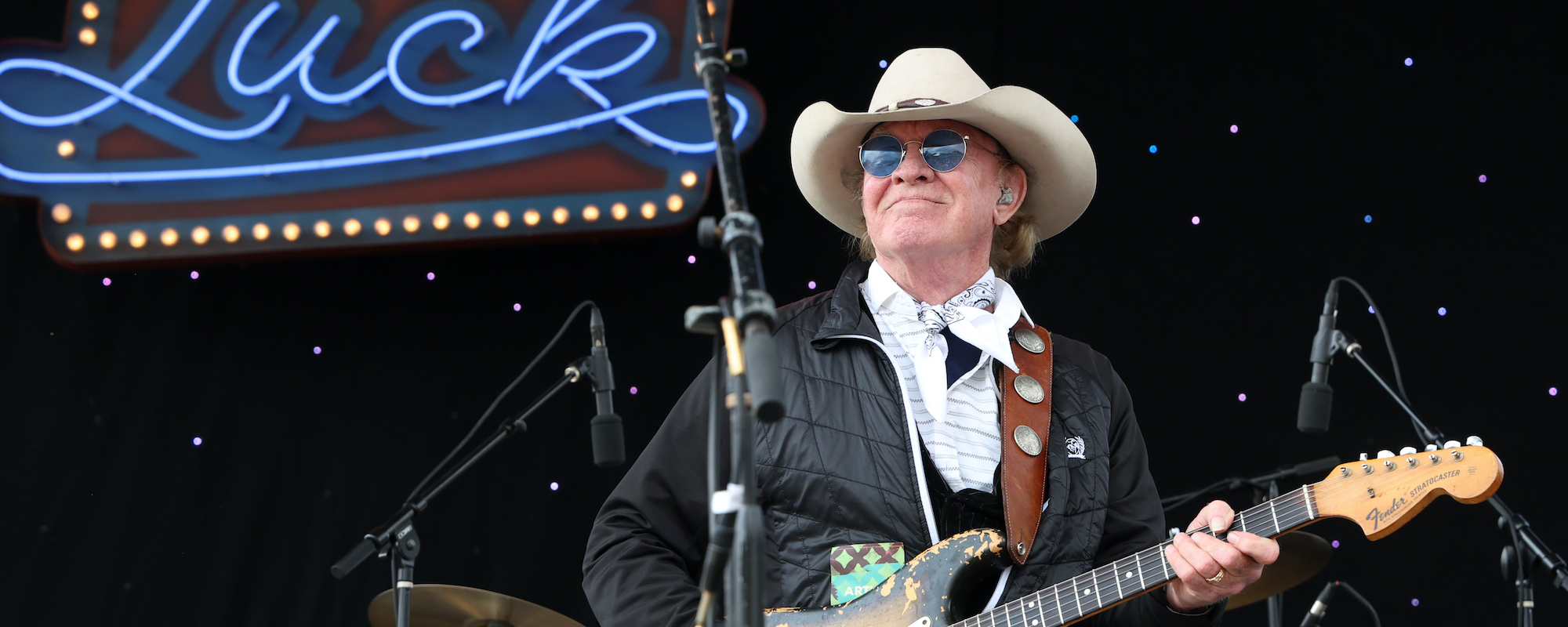The first time Willie Nelson met Waylon Jennings, he told him to stay in Arizona. At the time, it was still early on in both country legends’ careers, and Jennings was performing at a bar in Phoenix, Arizona, when the two had their first fateful meeting.
Videos by American Songwriter
“I first saw him at a place in, I think it was Phoenix, when he was working at a bar there,” said Nelson. “And I watched his show, and he played good guitar, and he sang good. And I met him after the show and we were talking, and he said, ‘What do you think I oughta do? Do you think I oughta go to Nashville?’”
Nelson continued, “I said, ‘How much money you making?’ He said, ‘I think $400 a week.’ I said, ‘Stay where you are.’ Of course, he didn’t listen to me, he went on to Nashville and did great.”
Nelson eventually moved out of Nashville and back to Texas in the early ’70s after his marriage ended and he lost a home in a fire, while Jennings, who relocated in 1965, stayed. The two reconnected in the 1970s and pioneered the outlaw country brigade rounded out by the likes of Johnny Cash, Merle Haggard, Hank Williams Jr., and others.
“Mammas, Don’t Let Your Babies Grow Up To Be Cowboys”
Throughout the 1970s, Nelson and Jennings toured and collaborated together. Nelson co-wrote several songs for Jennings, including his 1971 hit “Good Hearted Woman” and “Pretend I Never Happened” in 1972. They both appeared together on the 1976 compilation, Wanted! The Outlaws, along with Jennings’ wife Jessi Colter and Tompall Glaser.
In 1977, Jennings’ album Ol’ Waylon featured Nelson on the opening track “Luckenbach, Texas (Back to the Basics of Love).” On the track, Nelson sings in the very final verse.
A year later, the pair released their debut collaborative album, Waylon & Willie, featuring their country hit “Mammas, Don’t Let Your Babies Grow Up To Be Cowboys.”
[RELATED: Meaning Behind Waylon Jennings’ Self-Aware No. 1 “I’ve Always Been Crazy”]
Originally recorded and released by Ed Bruce in 1976, and co-written with his wife Patsy Bruce, the first version peaked at No. 15 on the country chart, while the Nelson and Jennings’ rendition shot to No. 1.
Waylon & Willie also peaked at No. 4 on the Billboard 200 and No. 1 on the Top Country Albums chart, where it remained for 10 weeks. The album stayed on the country charts for a total of 126 weeks.
Right in their prime with Jennings’ in the midst of several No. 1 albums and Nelson’s success around his 1982 album Always On My Mind, the duo reconnected for WWII. That project hit No. 3 on the country chart, followed by Take It to the Limit, in 1983.
Nelson and Jennings reunited for a fourth and final album together, Clean Shirt, in 1991.
Fights
Though Nelson and Jennings often fought like an “old married couple” — whether it was politics, religion, music, or how a song should be written — they never let their bickering get in the way of their friendship.
[RELATED: 6 Songs Willie Nelson Wrote That Were Made Famous by Other Artists]
“Waylon and I were like two old married people,” said Nelson. “We fought about everything, and if he was for it, I was against it. And you know, that’s kinda the way it was. But we were great friends.”
In an interview with his wife, Jennings talked about his friend and said Nelson was faking his demeanor. What you see is what you get. “Willie’s great,” said Jennings. “Willie’s the same, you know. What you see with Willie, that Willie, is the Willie. He’s never any different.”
The Highwaymen
After overcoming an addiction to cocaine in the early ’80s, Jennings also joined up with Nelson, Cash and Kris Kristofferson for the country supergroup The Highwaymen in 1984. Throughout the next decade, the foursome released three albums — Highwayman, Highwayman II, and The Road Goes on Forever — through 1995.
After decades of collaboration, Nelson and Jennings remained close friends until Jennings’ death on February 13, 2002, at 64.
(Photo by Michael Putland/Getty Images)
















Leave a Reply
You must be logged in to post a comment.